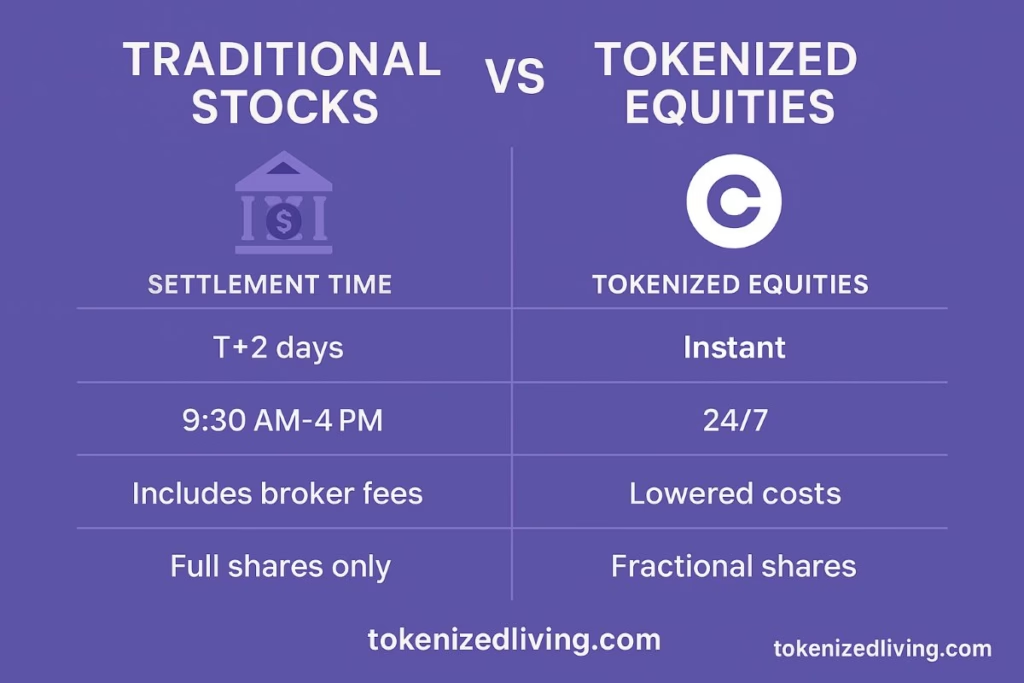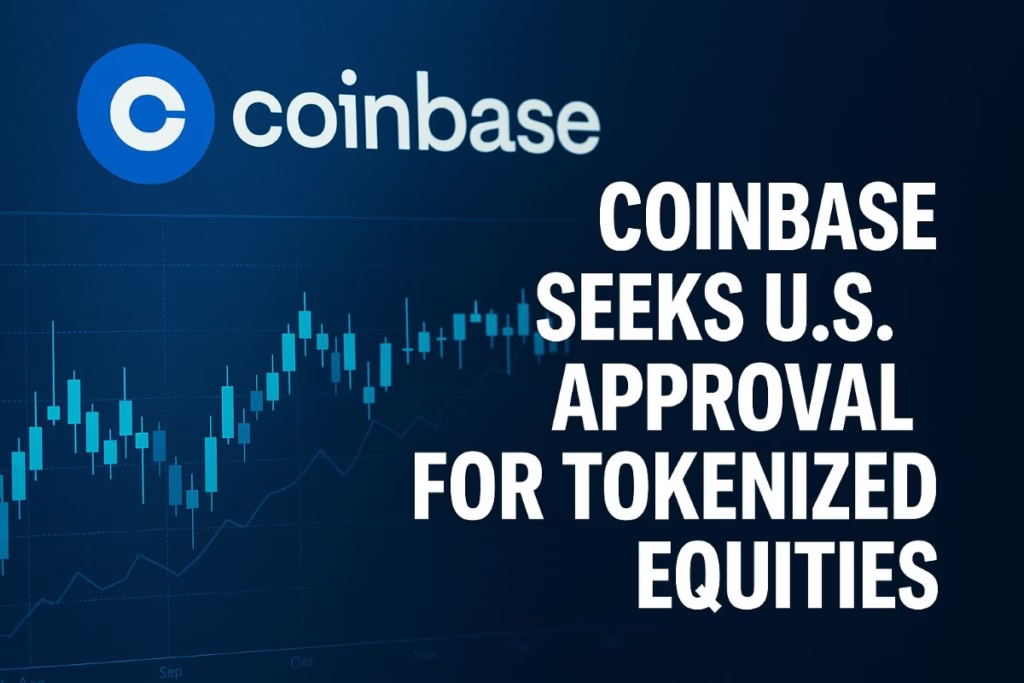Coinbase is requesting a no-action letter from the SEC to offer tokenized U.S. equities in the U.S.—a move toward 24/7 trading, lower fees, and blockchain-based settlement. However, challenges around liquidity, regulatory clarity, and broker-dealer registration still need resolution.
“With a no-action letter, an issuer of a tokenized equity … can have some confidence that the SEC has adopted its view of why this product is compliant. That’s what has been lacking—-and really held back a lot of the institutional adoption.”
— Paul Grewal, Chief Legal Officer, Coinbase
📈 The Coinbase Tokenization Push
Why This Matters
Coinbase, known as one of the largest U.S.-regulated crypto exchanges, is positioning itself to become a bridge between Wall Street and Web3. They want tokenized U.S. equities—like Apple, Tesla, or the S&P 500 ETF—Coinbase aims to bring blockchain’s benefits to mainstream securities.
This would allow investors to trade fractional shares 24/7, settle instantly, and potentially reduce transaction costs compared to traditional brokerages.
🏛️ SEC Approval Process
The exchange is seeking a no-action letter from the SEC—a formal assurance that the agency will not pursue enforcement if Coinbase launches the service under specified conditions.
This is a critical step in navigating U.S. securities law, especially after the SEC’s past actions against other tokenization projects.
If granted, Coinbase could be the first major U.S. exchange to legally offer tokenized versions of domestic equities to retail customers.

🔄 Market Benefits of Tokenized U.S. Equities
1. Instant Settlement
Blockchain removes the need for traditional clearinghouses, reducing settlement times from T+2 to near-instant.
2. 24/7 Trading
Tokenized equities would enable after-hours and weekend trading—matching the flexibility of global crypto markets.
3. Fractional Ownership
Investors could buy small fractions of expensive stocks, making blue-chip equities accessible to more people.
4. Lower Fees
Smart contracts could automate many processes, lowering operational costs for both exchanges and investors.

⚠️ Key Challenges related to Tokenized U.S. Equities
- Liquidity: Tokenized equities need active markets to maintain fair pricing.
- Custody Rules: Balancing blockchain wallets with existing U.S. custody regulations is complex.
- Standardization: Without industry-wide token formats, interoperability could be limited.
🌐 The Bigger Picture
Globally, platforms like Backed Finance (Switzerland) and Kraken’s xStocks have already launched tokenized equity products—but they’re only available outside the U.S. due to regulatory barriers. Coinbase’s move could set a precedent for integrating tokenized stocks into America’s heavily regulated financial system.
For more on how tokenized securities are evolving, see World Economic Forum: Tokenization of Assets and SEC Investor.gov on Tokenized Securities.
✅ Conclusion: A Potential Wall Street Game-Changer
If Coinbase secures SEC approval, it could mark the start of a new era where U.S. investors trade traditional stocks with crypto-like speed and flexibility. The shift could pressure other brokerages to explore tokenization, accelerating the modernization of securities markets.
However, the road is paved with regulatory hurdles and operational challenges. As both blockchain innovators and policymakers shape this landscape, the Coinbase initiative could become a pivotal case study in bridging traditional finance and digital assets.
❓ FAQs: Coinbase and Tokenized U.S. Equities
Digital representations of traditional stocks on a blockchain, backed 1:1 by the underlying asset.
Offering U.S. equities—tokenized or not—requires compliance with U.S. securities laws and broker-dealer rules.
If the SEC grants a no-action letter, yes. Until then, such offerings are typically restricted to non-U.S. markets.
Tokenized stocks are backed by the actual share, whereas synthetic assets track the price without ownership.
Regulatory changes, technical custody challenges, and market adoption.

